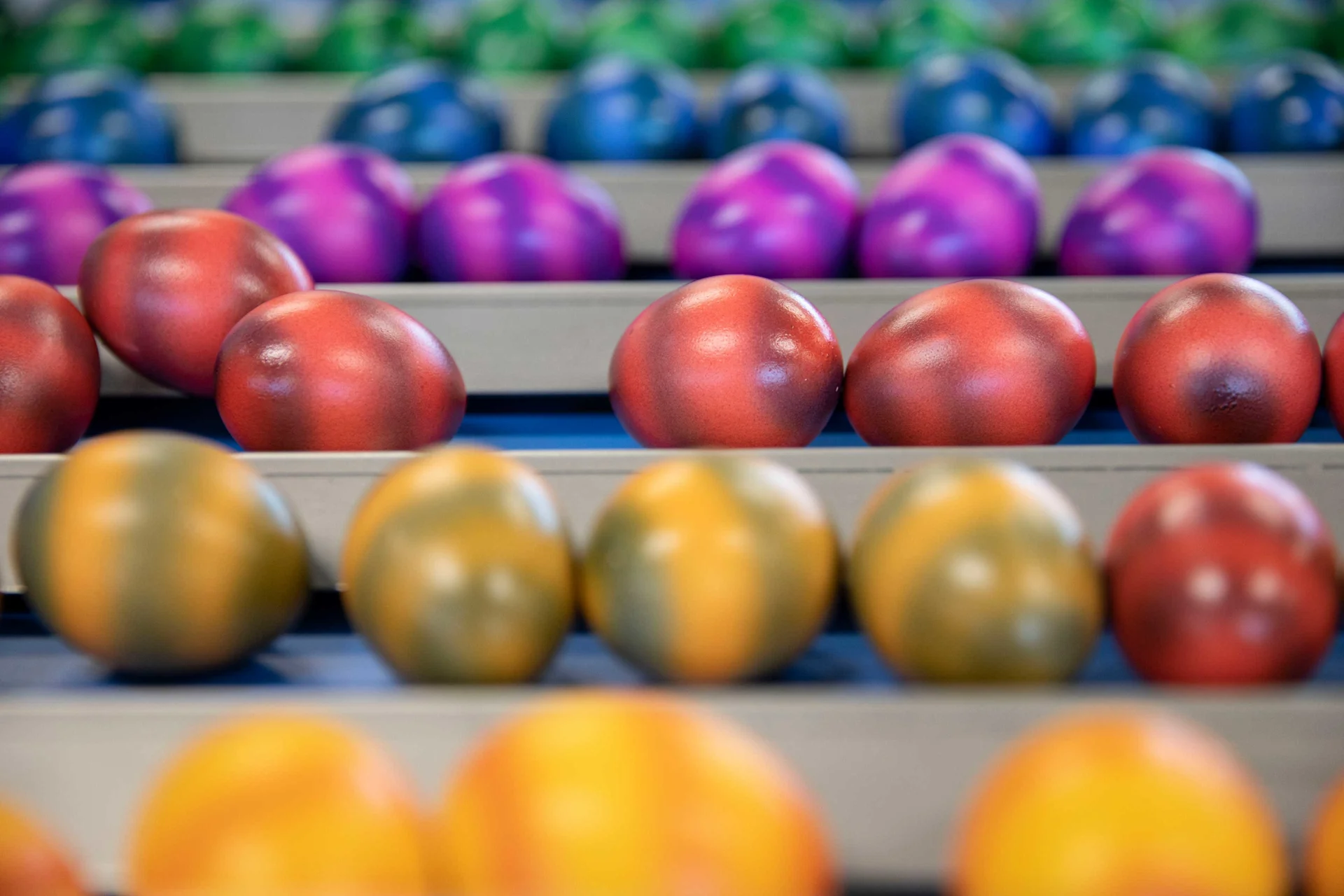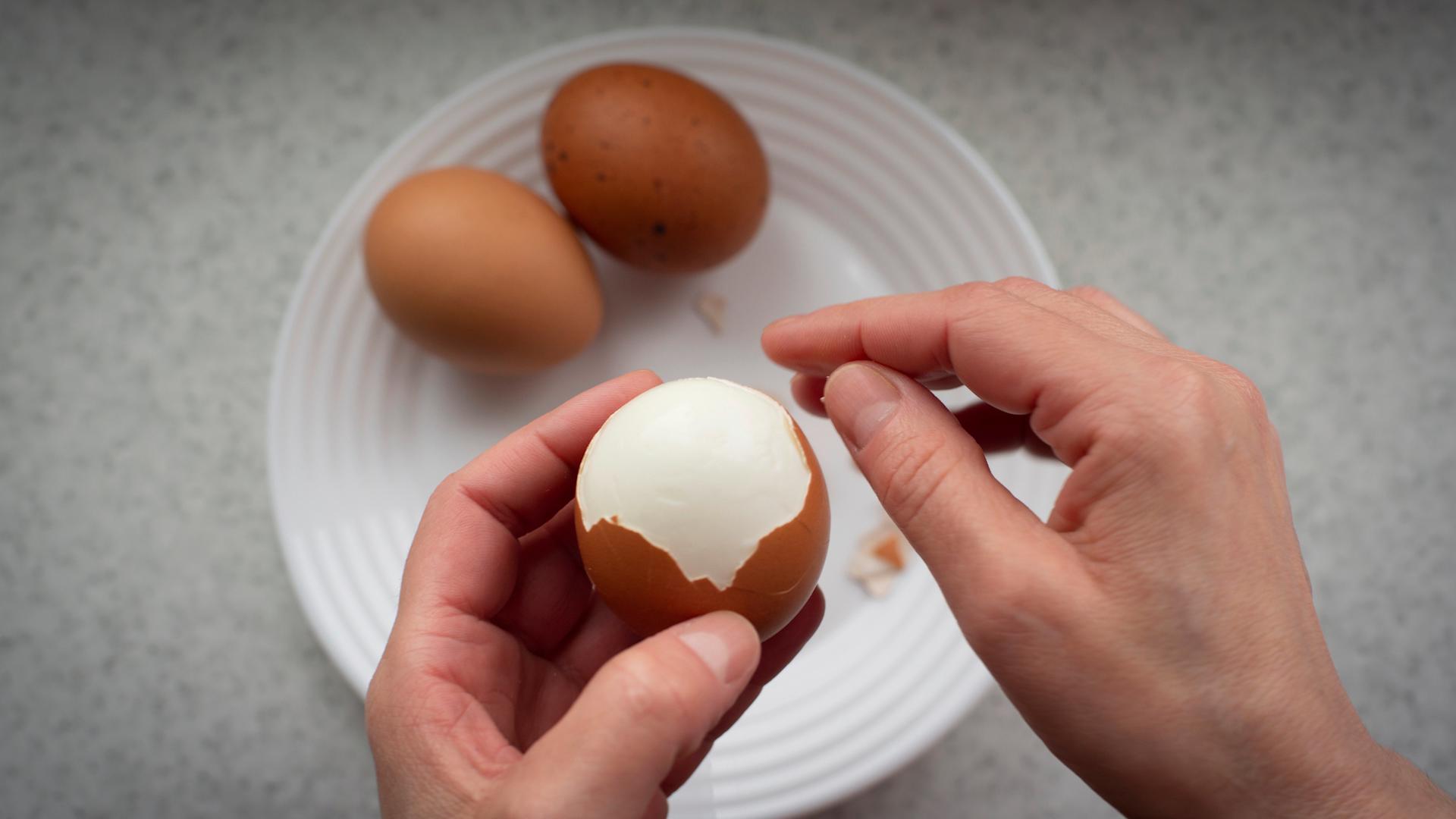
Supermarket
Egg shortage: why is there a bottleneck?
Demand for eggs in Switzerland has increased significantly. How Migros is responding.
navigation

Supermarket
We explain how long hard boiled eggs can be kept for - and how to peel them more easily.
Ten minutes if you put the egg into boiling water straight out of the fridge. If you place it into cold water, it takes about six minutes from the moment the water starts boiling. Four to five minutes is usually enough for small eggs. By contrast, very large eggs need to be boiled for a minute longer.
These four tricks will help:
Use eggs that are no longer completely fresh, since these peel easier after boiling.
Add a tablespoon of vinegar to the cooking water. This makes the shell easier to remove.
Rinse your eggs in cold water after boiling. Before rinsing, tap the shell gently with a knife or spoon so that it makes a dent.
If you want to peel your eggs later, it’s best to hold the slightly cracked eggs under running water just before peeling.
As long as the shell is undamaged, you can store hard-boiled eggs in the fridge for up to two weeks. If you want to keep them for this long, you should never rinse them with cold water, as this will shorten their shelf life. Any eggs that have developed small cracks during cooking should be used first, since cracked shells shorten their durability. Cooked eggs stored at room temperature should be eaten within two days.
Because the shells of these eggs have a protective, food-safe coating applied to them during the dyeing process. This extends the shelf life of the boiled eggs. You should store these eggs in the fridge and make sure that you check the best-before date.
This ring forms if an egg is boiled for a long time (more than ten minutes). In this case, the iron in the egg yolk reacts with the sulphur compounds in the egg white. However, you can still eat such eggs without any problems because this chemical reaction doesn’t adversely affect the taste.
Take the eggs out of the fridge 20 minutes before boiling. This reduces the temperature difference between the egg and the boiling water. Very large differences in temperature can cause an egg shell to burst. Also, you shouldn’t put too many eggs into the pot at once, otherwise they will bounce into each other more. Simmer the water gently rather than letting it bubble. This prevents the eggs moving around in the water as much.
No, because that doesn’t help. In a test of 3000 eggs, half of which were pierced before boiling, the shells of the same number of eggs in both groups cracked during cooking.
Rinsing in cold water interrupts the cooking process. This is particularly useful for soft-boiled eggs, since the egg will not cook any further, and therefore remain soft. If you want your eggs hard-boiled, there’s no need to rinse them in cold water. However, it does make them easier to peel.